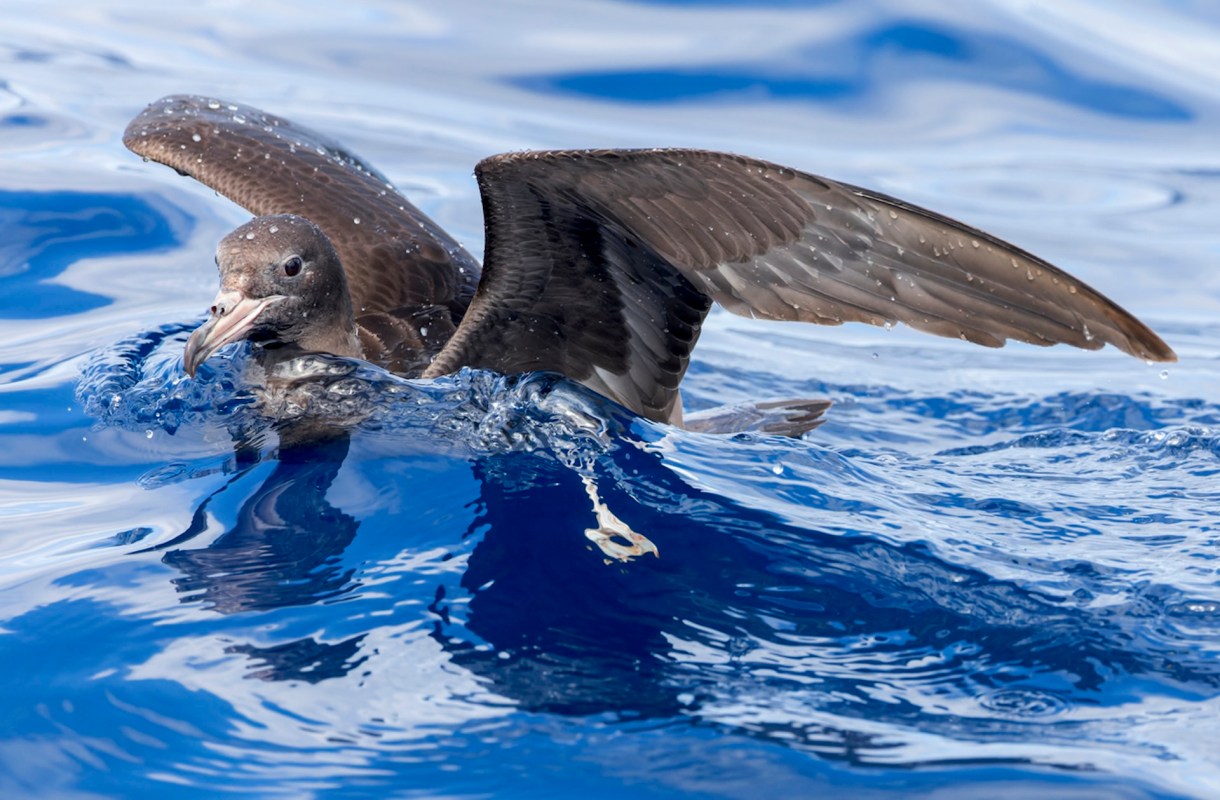The amount of plastic pollution in our oceans is constantly increasing — at least 14 million tons of plastic enters the ocean every year — with devastating effects on marine life. Some of those effects we have yet to fully understand, as research into seabirds has revealed that ingesting plastic is changing the birds' blood chemistry.
What is happening?
In a study published in Environmental Science & Technology, Dr. Alex Bond, the Senior Curator in Charge of Birds at the UK Natural History Museum, and his co-authors looked at a group of flesh-footed shearwaters that live on Lord Howe, an island off the coast of Australia.
They found that for the seabirds, "Many interactions with debris … result in less visible and poorly documented sublethal effects, and as a consequence, the true impact of plastic is underestimated."
"But what we noticed on Lord Howe was that a lot of the seabirds we encountered alive also had plastic in them," said Bond, "And we wanted to try and better understand what sublethal effects that plastic ingestion might be having."
Among those sublethal effects are that ingesting plastic appears to cause chicks' wings to grow more slowly and that birds with plastic had higher cholesterol, lower dissolved calcium, more uric acid, and more amylase in their blood.
Why is this concerning?
The specific consequences of these sublethal effects on birds are not known, but the main takeaway is that they are not good, and that the amount of plastic in the ocean is assuredly having a negative effect on the things that live there — almost certainly to a larger extent than we even realize.
"We know that in humans high levels of cholesterol are bad and cause circulatory problems, but the challenge with birds is that no one has really thought to look at this. No one really cares what the cholesterol levels of a shearwater are, or what is considered normal and what is of concern," Dr. Bond said.
What can be done about it?
"You have to wonder how long this species can keep this up," Bond said. "Plastic in the ocean is increasing exponentially and that is not an exaggeration, so it is not a problem that is going to get better any time soon … Reducing the amount of plastic that gets into the ocean is the only way that it is going to be sorted."
On an individual level, some of the very easy ways that we can cut down on our plastic usage include reusable water bottles and non-plastic sandwich bags.
Join our free newsletter for weekly updates on the coolest innovations improving our lives and saving our planet.









